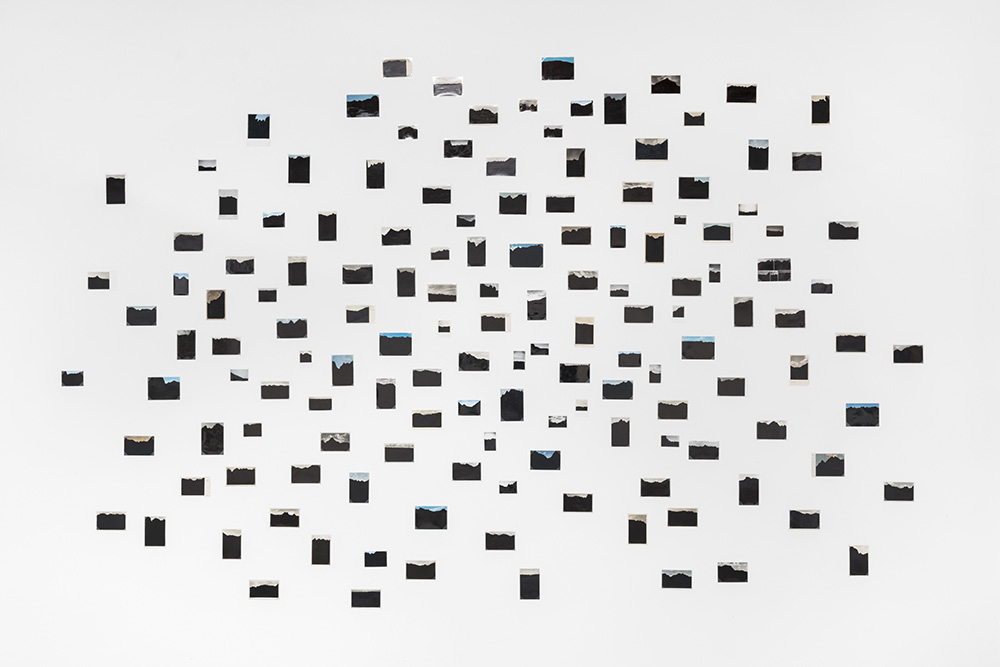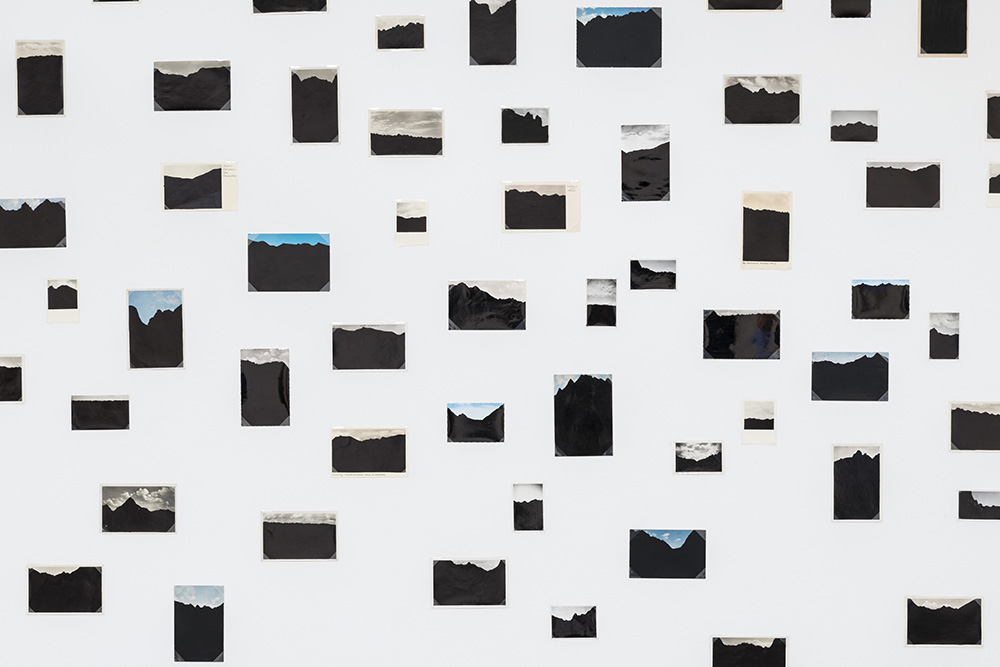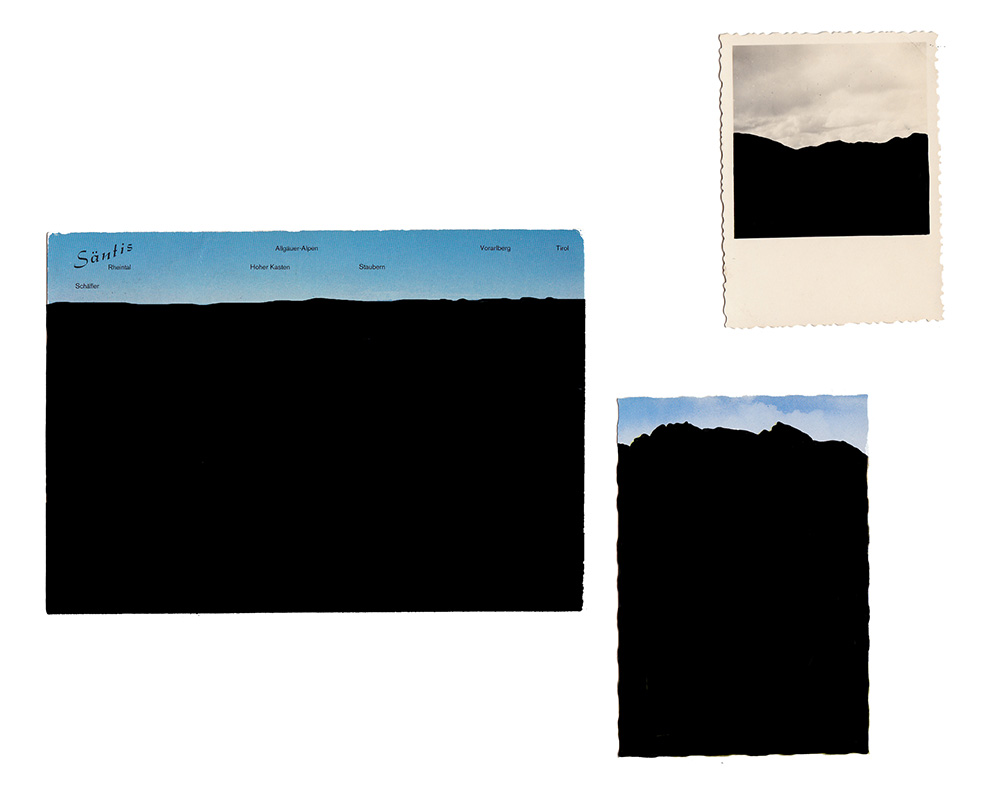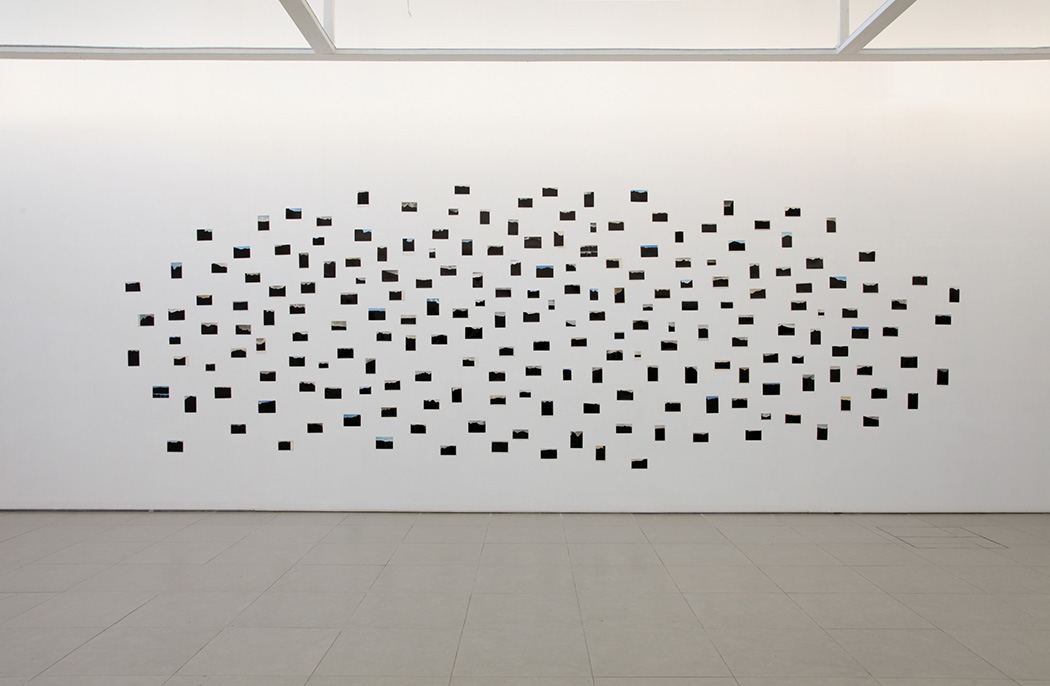OBLIVION
A collection of old photographs and postcards found in antique shops in Germany is the basis of Oblivion. All the images show the Alpine region and are painted with black ink, covering the entire mountain landscape and leaving evidence of only their silhouettes and the sky.
The images found (which form a library of abandoned memories) are appropriated and altered: the gesture of “erasing” this specific landscape highlights historical memories related to this region.
Put together, the approximately 300 photographs and postcards draw the representation of a landscape within another landscape.
Covering these images also makes explicit a thought related to the theme of forgetfulness in Germany.
OBLIVION 300 old postcards and photographs painted with black ink 2010 – in process
Oblivion was the starting point of Alpenprojekt, a series of works related to this specific landscape (developed during the period Marina Camargo lived in Munich – Germany). It was the starting point of Alpenprojekt, being part of the Trilogy of Mountains.
The entire project is called the Trilogy of Mountains and is related to memory and history. It is devised in three phases: Alpenprojekt, based on the alpine landscape; the second one approaches Beckton Alps, an artificial mountain in east London; and the third part is related to artificial mountains made with war debris in Germany. Each piece of the Trilogy comprises a series of works.
In the Trilogy of Mountains, the tension between natural and artificial is a central issue, complementary to the opposite. The project was initially developed based on landscapes where the notion of Romanticism is still present. Then the project was set toward the post-industrialization period—and finally related to reshaping the topography in Germany after the II World War.
Photo Credits: 1 and 2 by Joshua White / 3 and 4 by Marina Camargo.



